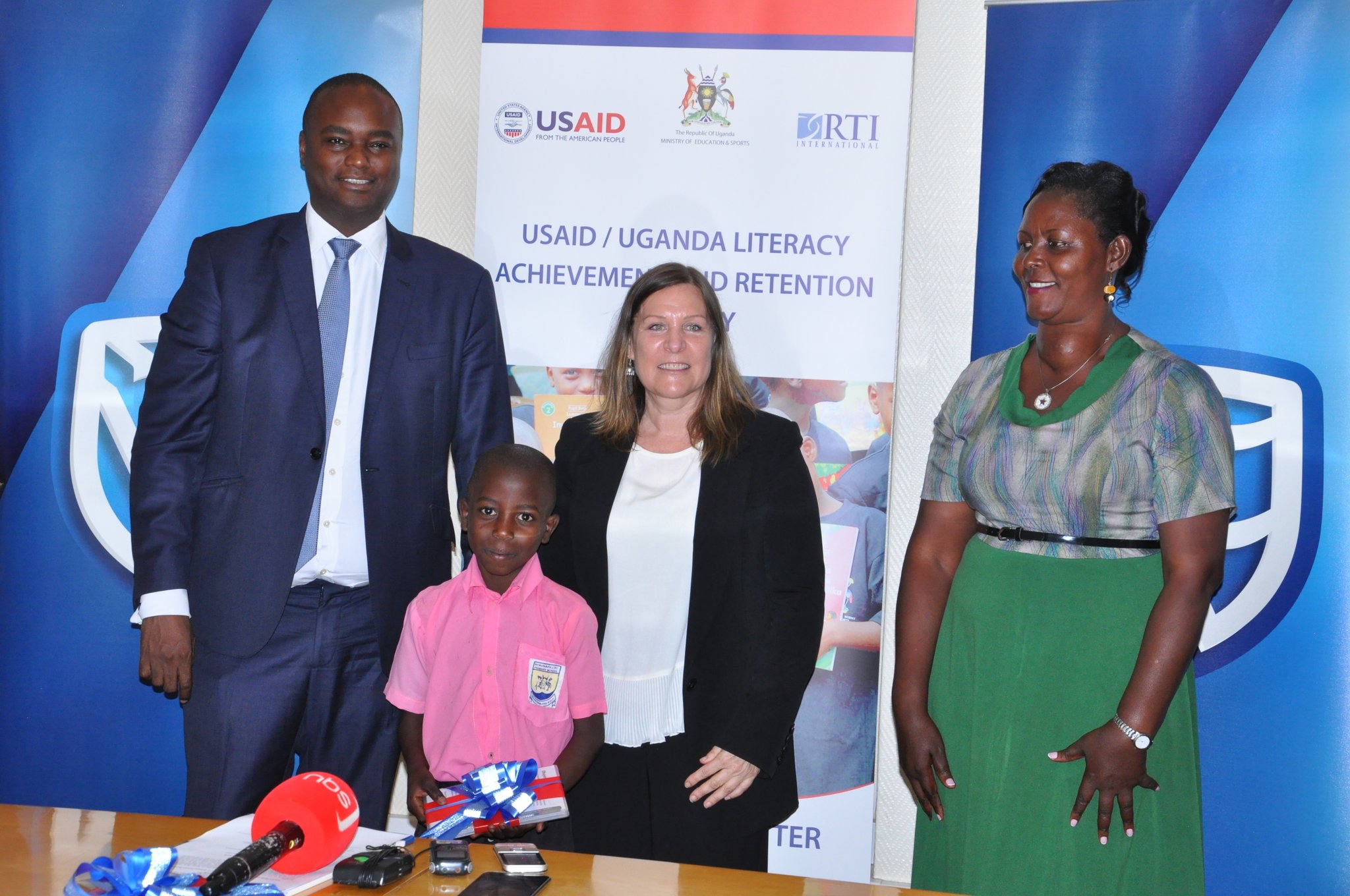Stanbic Bank together with USAID are investing in a project to help boost literacy among school going children by providing reading cards in different schools.
The pilot project will be roled out in selected schools in the districts of Buvuma and Kiboga given the high enrollment of children in these particular districts this year.
The durable and simplified cards contain stories in local languages relevant for children between 5 and 10 years of age. The materials have specifically been crafted with local content that can be used by the children with their parents in an effort to improve the reading culture.
The cards will be distributed to pupils in Primary One to Primary Four in the two districts of Kiboga and Buvuma where enrollment has rapidly increased this year.
At an event on Wednesday where Stanbic Bank handed over 30,000 reading cards worth Shs 20 million to USAID, Patrick Mweheire, the CEO for Stanbic said that investment in education is critical since the sector is underserved.
“We spend 80% of our Coporate Social Responsibility on education because we believe it is an underserved sector. As Uganda, we add 1.2 million babies a year, but there does seem to be any crisis in thinking about how we are going to educate these children and get them to an international level of education,” Mweheire said.
He said that more efforts are required in education especially given that 50% of Uganda’s population are under age 15.
“We are happy to contribute to this pilot. We do hope this is something that will be rolled out across the country and we shall be there to support all thoses intitiatives,” he said.
The handover of the reading cards is part of the bank’s partnership with the USAID/Uganda Literacy Achievement and Retention Activity project being implemented by the Ministry of Education through the learning campaign ‘Tusomere Wamu’.
A 2016 study identified low levels of parental engagement in children’s reading practice at home to be a major cause of low literacy levels in Uganda.
“As children begin to learn to read, the process of identifying letters and the sounds that letters represent, and how to blend them to make words, then sentences is a difficult process. The ability to read is the basis of all future learning,” the USAID Chief Party, Geri Burkholder said during the handover event.
She said that children need to practice what they learn from schools at home and that parents play a critical role in fostering the love for reading among their children.
A baseline survey conducted by USAID showed that most parents lacked reading materials for their children. Similarly, schools were not willing to allow kids take the few reading materials home due to issues of cost and durability.
So far, a total of 1 million reading cards have been distributed across different schools.










